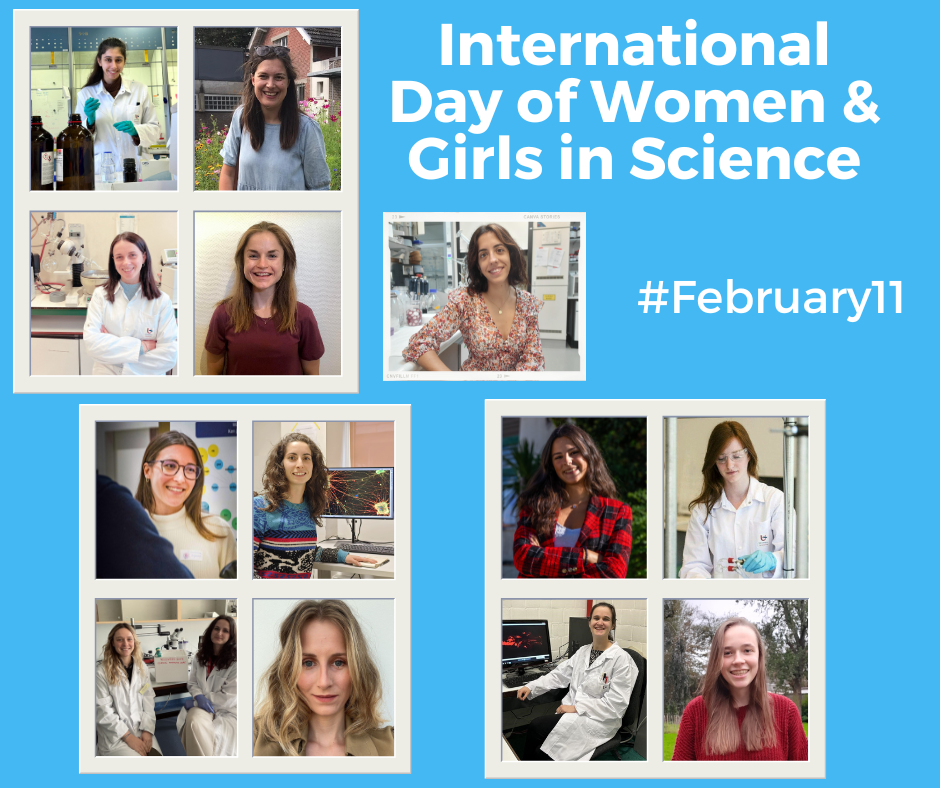
As we commemorate the International Day of Women and Girls in Science, we’d like to recognize and celebrate the invaluable contributions of our women researchers who are leading the way in scientific exploration. From unraveling the complexities of neurological disorders to pioneering advancements in cancer imaging and treatment, these exceptional women are at the forefront of cutting-edge research. Let’s delve into some of their remarkable research!
Angela Sisto: Autophagy Mechanisms in Charcot-Marie-Tooth Neuropathies
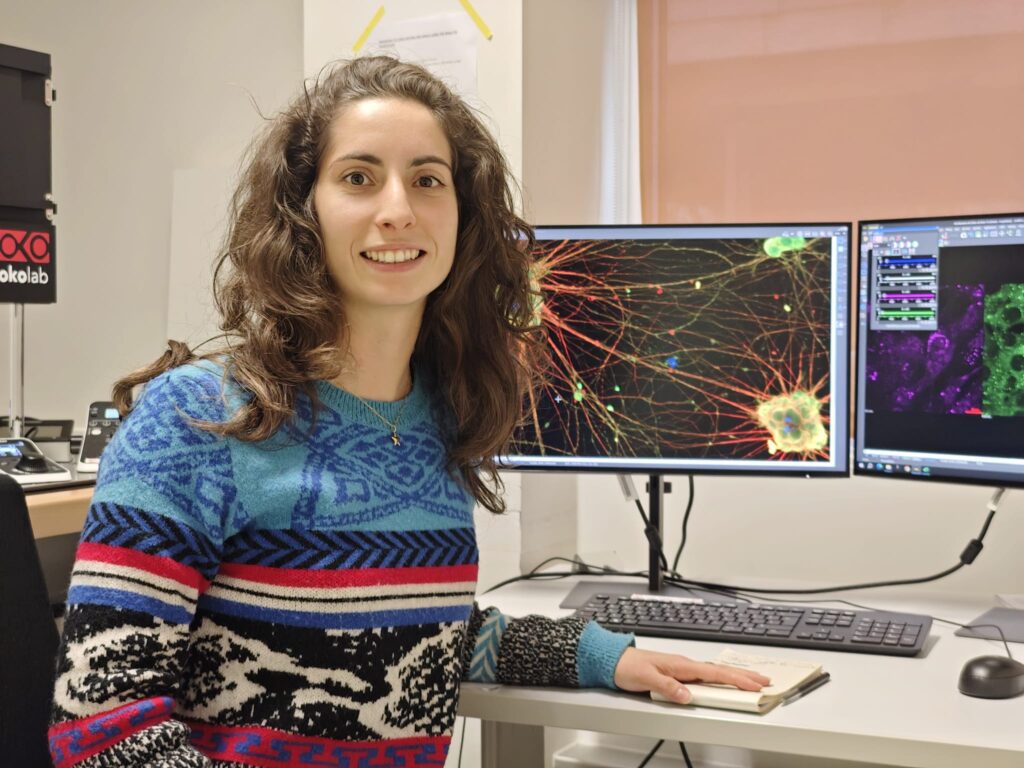
Angela Sisto, a senior Ph.D. student in the Peripheral Neuropathies group, under the supervision of Prof. Vincent Timmerman, is dedicated to unraveling the mysteries of Charcot-Marie-Tooth neuropathies (CMT), a group of rare hereditary diseases impacting peripheral nerves. Angela’s research focuses on determining the role of autophagy, the cellular recycling system crucial for neuronal health. Her aim is to rectify defective autophagy mechanisms linked to CMT mutations, with the ultimate goal of developing novel drugs to improve neuronal health in affected individuals.
Jente Hoyberghs: Optimizing the Zebrafish Embryo Developmental Toxicity Assay
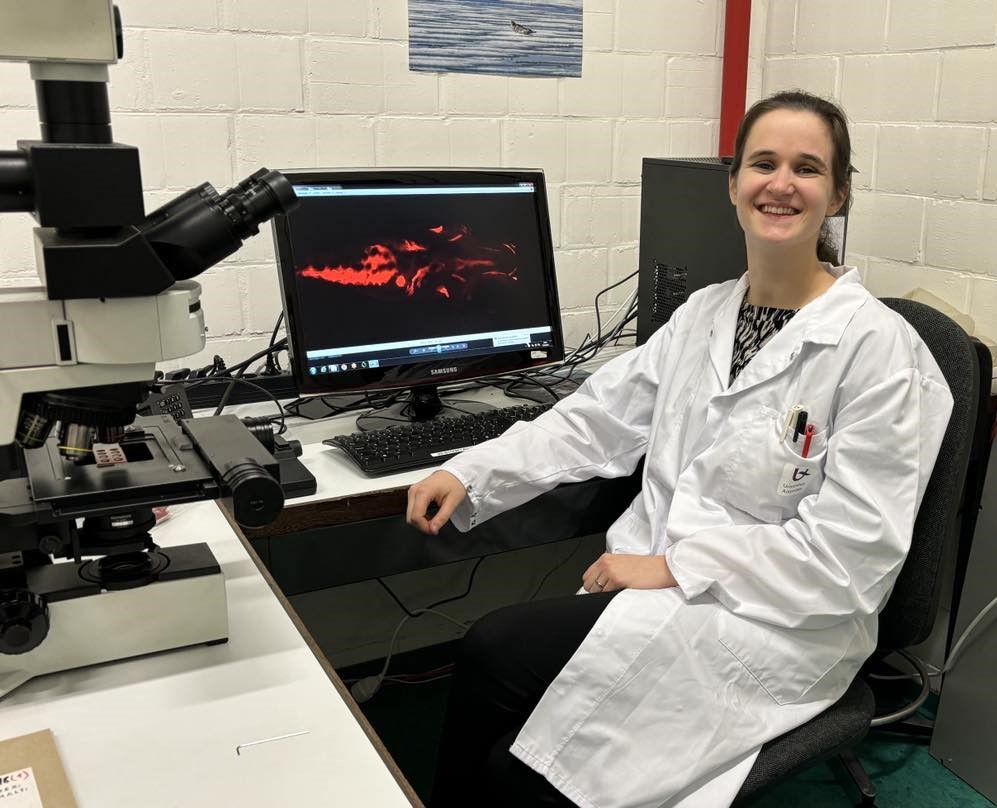
Jente Hoyberghs, a Ph.D. researcher in the Comparative Perinatal Development (CoPeD) group, works with Prof. Steven Van Cruchten and Dr. Kenn Foubert to optimize the Zebrafish Embryo Developmental Toxicity Assay (ZEDTA). By standardizing and optimizing this assay, Jente’s research aims to increase its sensitivity, thereby improving the prediction of developmental toxicity caused by drugs during early pregnancy. Her work contributes to enhancing safety assessments and reducing reliance on animal testing.
Rita L. Sousa: Unraveling the Potential of Oogonial Stem Cells for Fertility Preservation
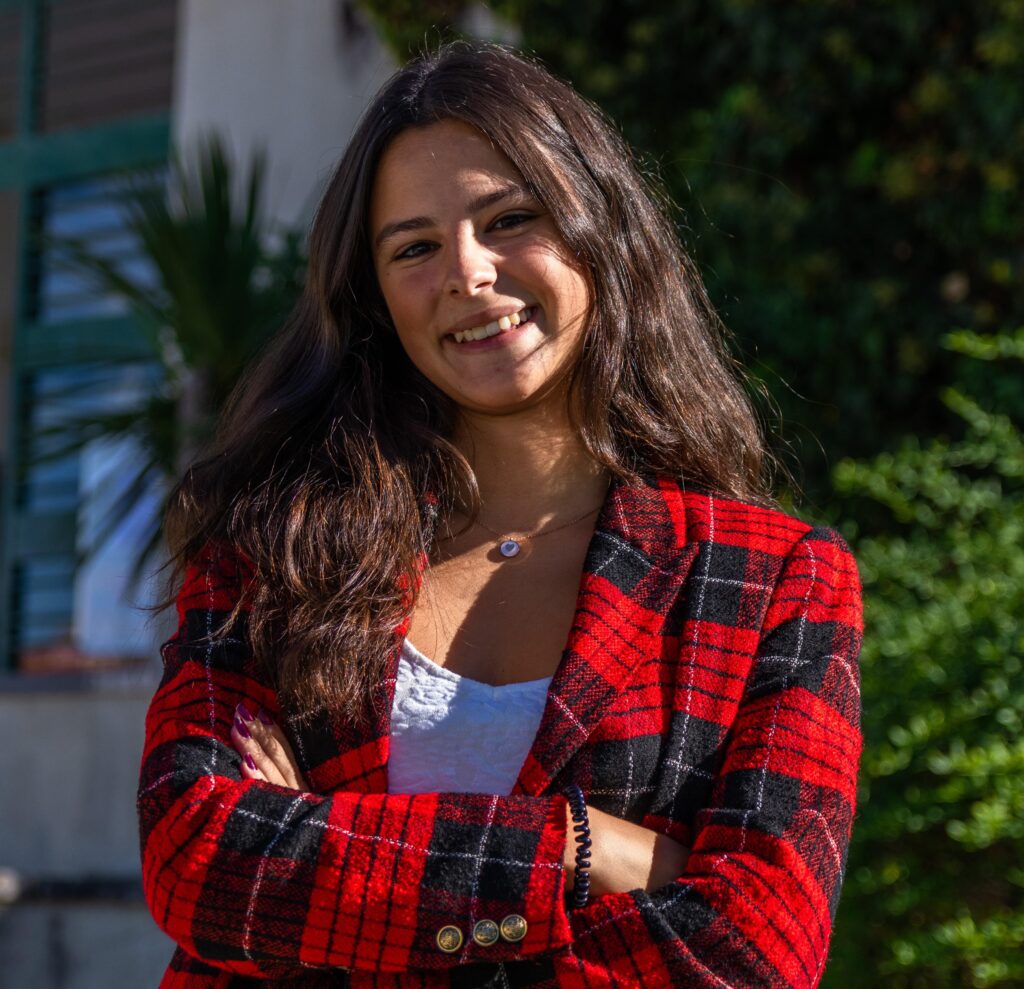
At the Gamete Research Center, Rita L. Sousa, a Ph.D. student working with Prof. Ruth Appeltant, explores the existence of oogonial stem cells (OSCs) in ovarian tissue. Rita’s research seeks to validate the presence of OSCs, which hold the potential to differentiate into oocytes, offering promising implications for infertility treatments and fertility preservation. Her work lays the foundation for advancements in reproductive medicine and fertility enhancement.
Marion Decrop: Investigating Basal Ganglia Dysfunction in Huntington’s Disease
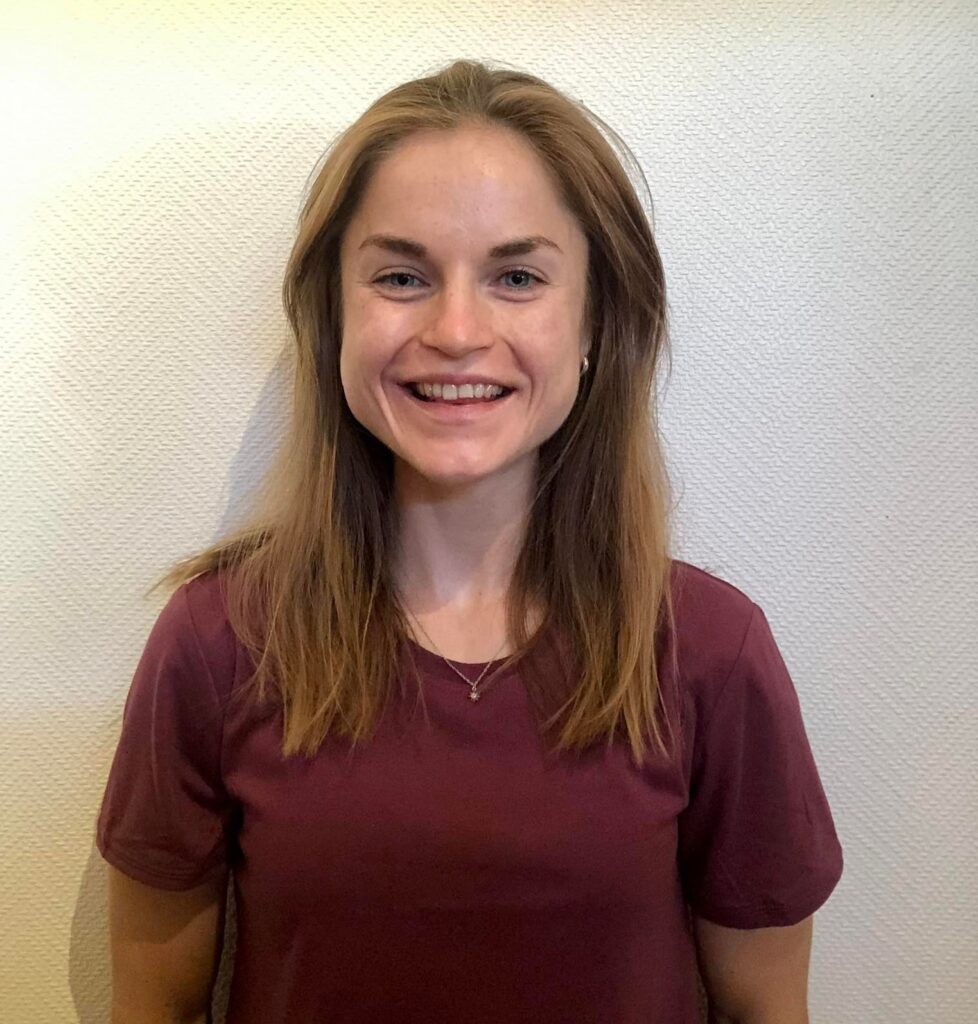
Marion Decrop, a first-year Ph.D. student in the Bio-Imaging Lab, works with Prof. Daniele Bertoglio and Prof. Marleen Verhoye. Her research focuses on Huntington’s disease (HD), a neurodegenerative condition resulting from a genetic mutation. Despite being present from birth, symptoms of HD typically manifest later in life, gradually affecting movement, cognition, and mental well-being. With no cure available, HD inevitably leads to fatality within 15-20 years of symptom onset. Marion’s project investigates the basal ganglia, a critical brain region reliant on dopamine for normal function. In HD, disruptions in the dopamine system within the basal ganglia contribute to movement impairments. To decipher the underlying mechanisms, she uses Magnetic Resonance Imaging (MRI) alongside electrophysiology and post-mortem studies. Through this interdisciplinary approach, Marion aims to gain deeper insights into HD-related brain abnormalities and identify novel therapeutic strategies for this debilitating disease.
Claudia Schrauwen: Enhancing Prediction of Spinal Cord Injury Outcomes
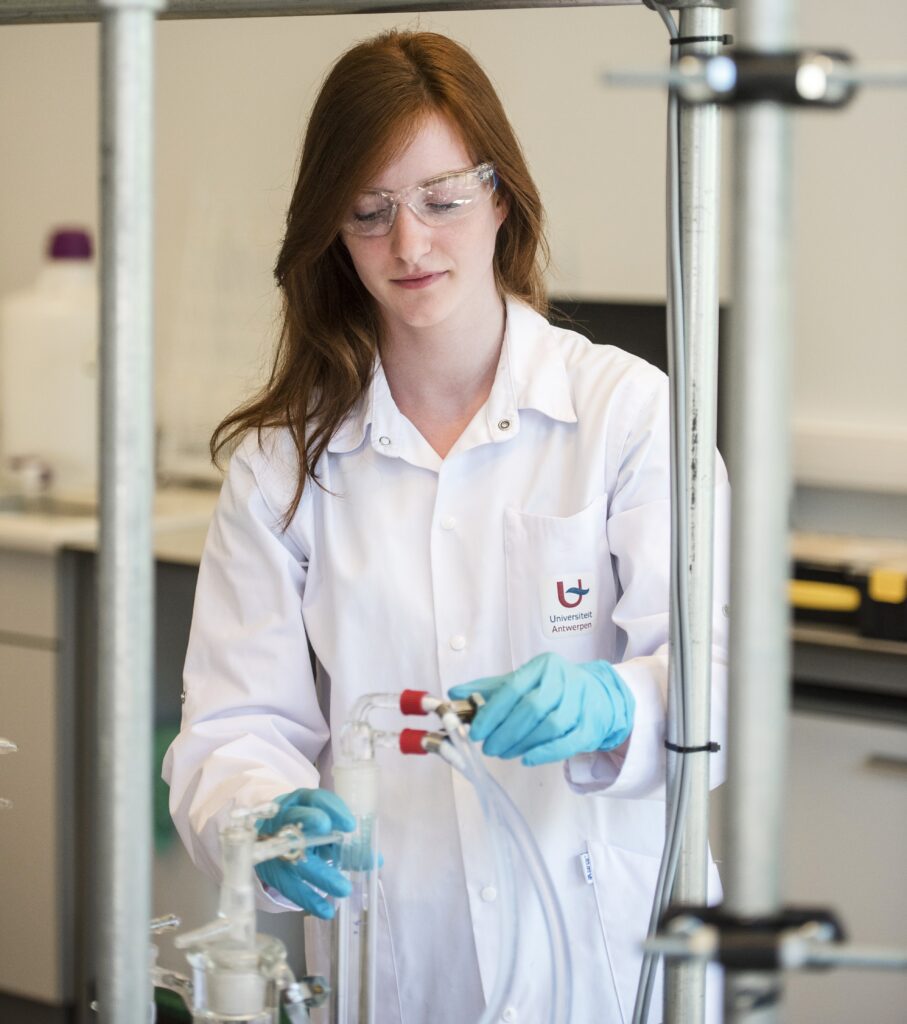
Claudia Schrauwen is a Ph.D. student in the Bio-Imaging Lab, under supervision of Prof. Daniele Bertoglio and Prof. Marleen Verhoye. In collaboration with Prof. Charles Nicaise at the University of Namur, she focuses on improving the prediction of outcomes in spinal cord injury (SCI) using medical imaging techniques. By leveraging advanced imaging methodologies, Claudia’s research aims to provide early prognostic indicators for injury outcomes, facilitating targeted care and the development of novel treatments.
Magda Thanopoulou: Pioneering Cancer Imaging with Novel Probes for Tumor Detection
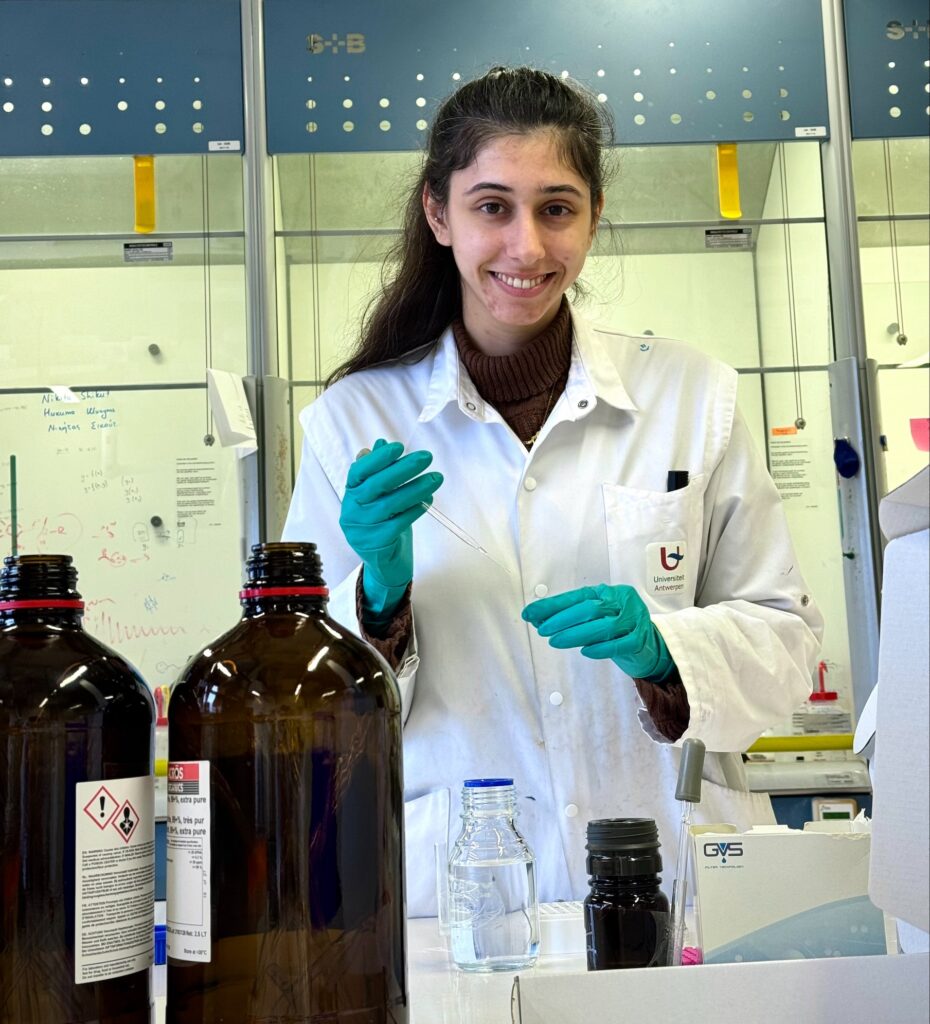
Magda Thanopoulou, a chemist in her second year of Ph.D. studies, is spearheading research on novel probes for imaging tumor-associated proteases using Positron Emission Tomography (PET) and fluorescence microscopy. Under the supervision of Prof. Pieter Van der Veken, Magda synthesizes small molecule inhibitors targeting proteases secreted by T-cells to kill cancer cells. Her work, together with Prof. Ingrid De Meester and Prof. Filipe Elvas, aims to develop potent inhibitors that can be converted into probes for non-invasive tumor detection and treatment monitoring. This project is funded by the European Union. You can read more about Magda’s research here: www.oncoprotools.eu
Sofie De Deken: Exploring Biotransformation of Natural Compounds for Health Promotion
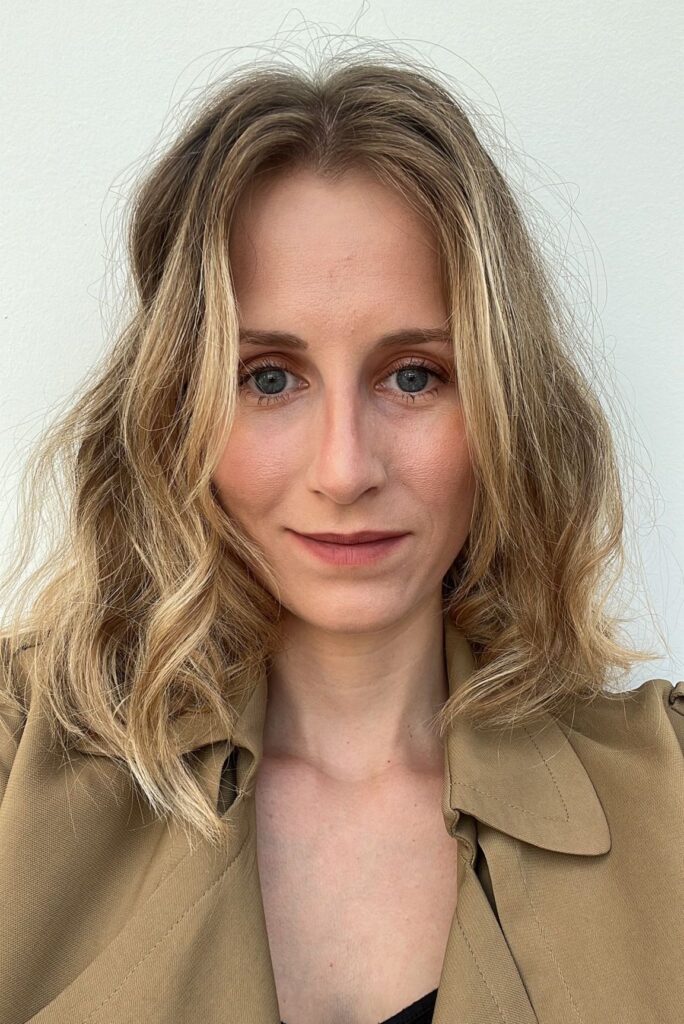
Sofie De Deken, a Ph.D. student in the research group NatuRAPT under the supervision of Prof. Nina Hermans and Prof. Emmy Tuenter, investigates the bioavailability and metabolism of the natural compounds epicatechin and harpagoside. Epicatechin, found in various plant-based foods, is believed to have positive effects on mechanisms contributing to diabetes and its complications. Harpagoside, a major phytochemical of Devil’s claw, is known for its anti-inflammatory properties. Sofie’s research delves into the biotransformation of these compounds by gut bacteria and their potential health-promoting effects, contributing to our understanding of these natural compounds’ role in health and disease.
Bo Goovaerts & Celine Civati: Investigating Heart Failure
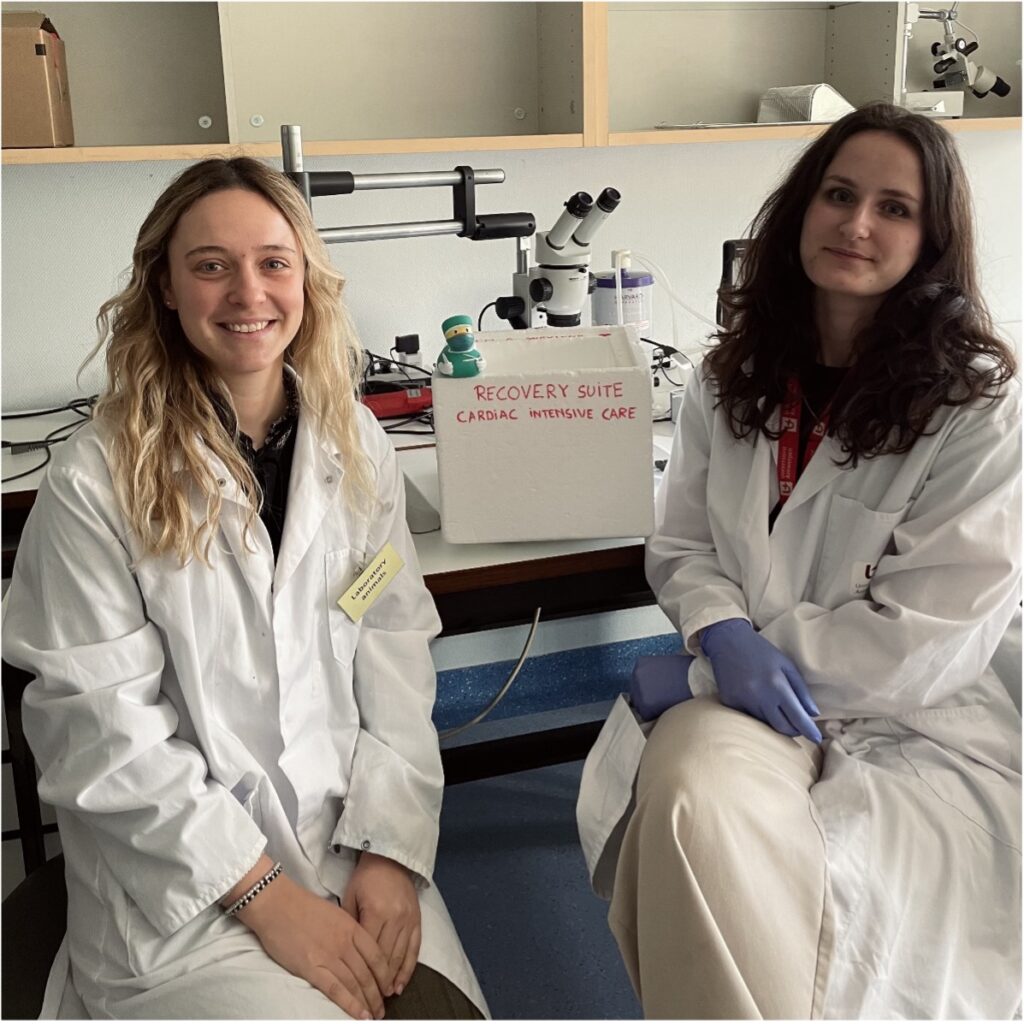
Bo Goovaerts and Celine Civati, Ph.D. students in the Physiopharmacology group, under supervision of Prof. Vincent Segers and Prof. Gilles De Keulenaer, are focused on cardiovascular research. Their projects focus on heart failure, a condition impacting millions globally. Bo’s research investigates the role of ERBB4 small-molecule agonists as a promising therapy for heart failure, while Celine explores the cross-talk between heart failure and cancer, specifically the effect of heart failure therapies on cancer growth. Together, they collaborate on an in vivo model of myocardial infarction, contributing to the understanding of cardiac remodeling and heart failure development.
Lori Berckmans: Unraveling Brain Changes after Spinal Cord Injury
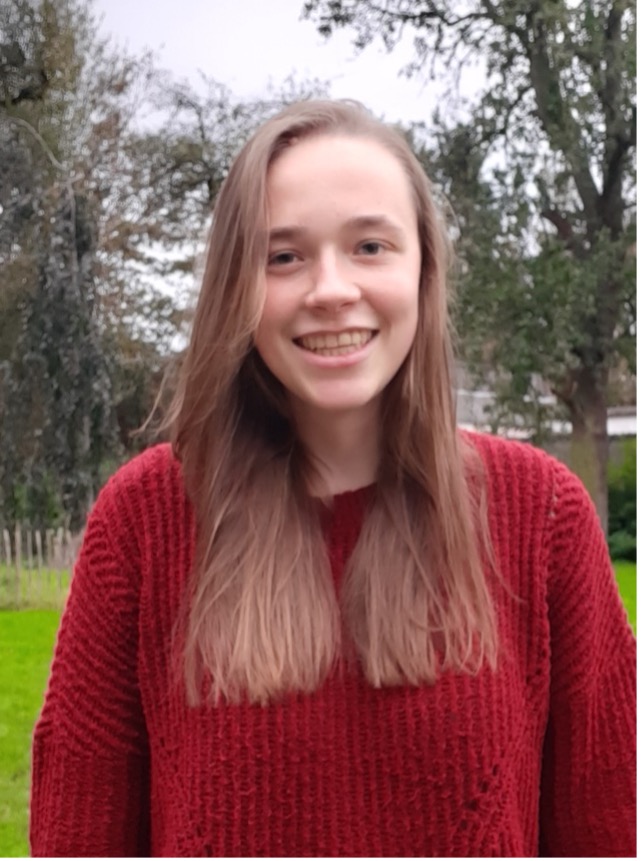
Lori Berckmans, a first-year Ph.D. student in the Bio-Imaging Lab, under the supervision of Prof. Daniele Bertoglio and Prof. Marleen Verhoye, is driven by her passion for neuroscience. Her research aims to uncover how the brain changes following spinal cord injury, a condition that can result from accidents such as car crashes or falls, and can affect anyone. Lori employs various imaging methods, including magnetic resonance imaging (MRI) and positron emission tomography (PET), to investigate both structural and functional changes in the brain post-injury. By identifying altered pathways in the brain, Lori seeks to explore if stimulation of these pathways can improve motor recovery, offering hope for individuals affected by spinal cord injury.
Stéphanie De Keulenaer: Identifying Neurophysiological Markers for Neurodegenerative Diseases
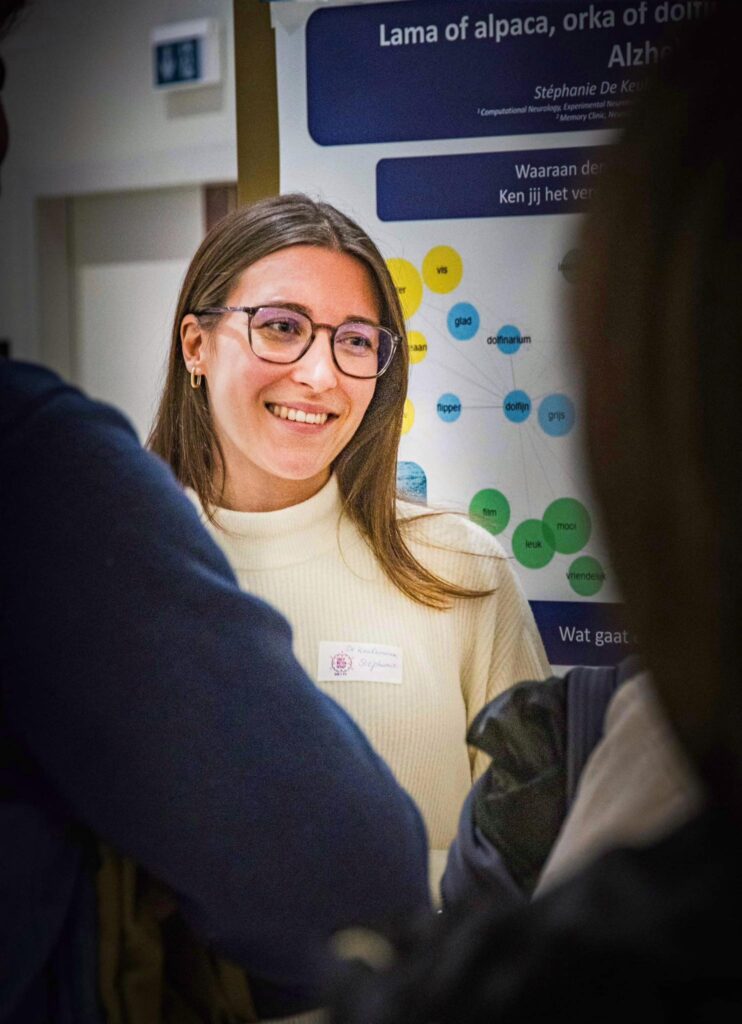
Stéphanie De Keulenaer, a Ph.D. student in the Computational Neurology lab (Experimental Neurobiology Unit) under supervision of Prof. Rose Bruffaerts, works on advancing early and reliable diagnosis of neurodegenerative diseases such as Alzheimer’s Disease (AD) and Frontotemporal Degeneration (FTD). Stéphanie’s research focuses on identifying new and reliable neurophysiological markers related to higher-order cognitive abilities using high-density electroencephalography (hd-EEG). By characterizing functional activity at an individual level, her work aims to quantify functional changes related to healthy aging and neurodegeneration, potentially serving as a non-invasive triage tool to identify patients at high risk for neurodegenerative disease.
Anneleen Robberechts: Transforming Patient Medication Management
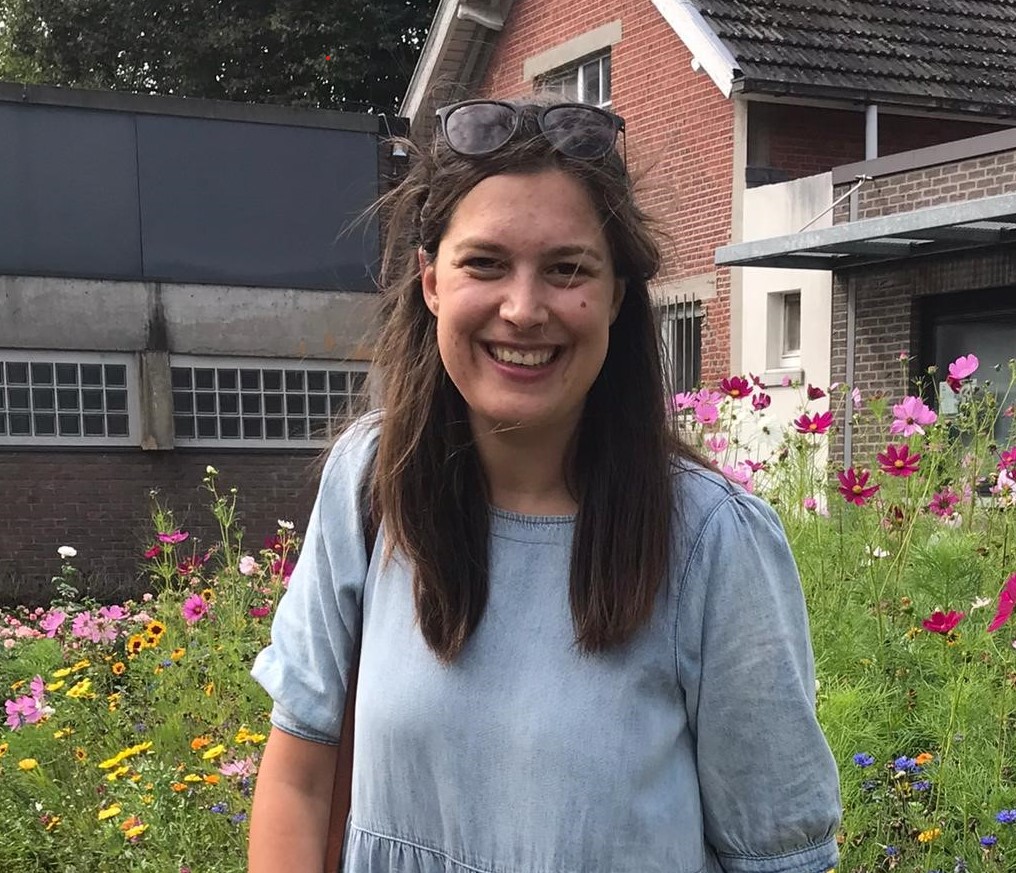
Anneleen Robberechts, who just completed the internal defence for her doctorate, investigated the implementation of the type 3 medication review in Flanders. Her goal is to transform patient medication management by fostering a collaborative partnership between general practitioners (GPs) and pharmacists. Anneleen emphasizes the importance of this collaboration in optimizing medication regimens and improving patient outcomes. Through medication reviews and seamless communication among stakeholders, Anneleen’s work aims to empower patients to take an active role in managing their medications effectively, leading to improved overall health and well-being. Supervised by Prof. Hans De Loof, Prof. Guido De Meyer, and Prof. Stephane Steurbaut (VUB), Anneleen is affiliated with Meduplace and KAVA, along with the Laboratory of Physiopharmacology at the University of Antwerp and the Research Group Clinical Pharmacology and Clinical Pharmacy at Vrije Universiteit Brussel (VUB).
Dr. Roberta Pacifico: Driving Discovery in Medicinal Chemistry
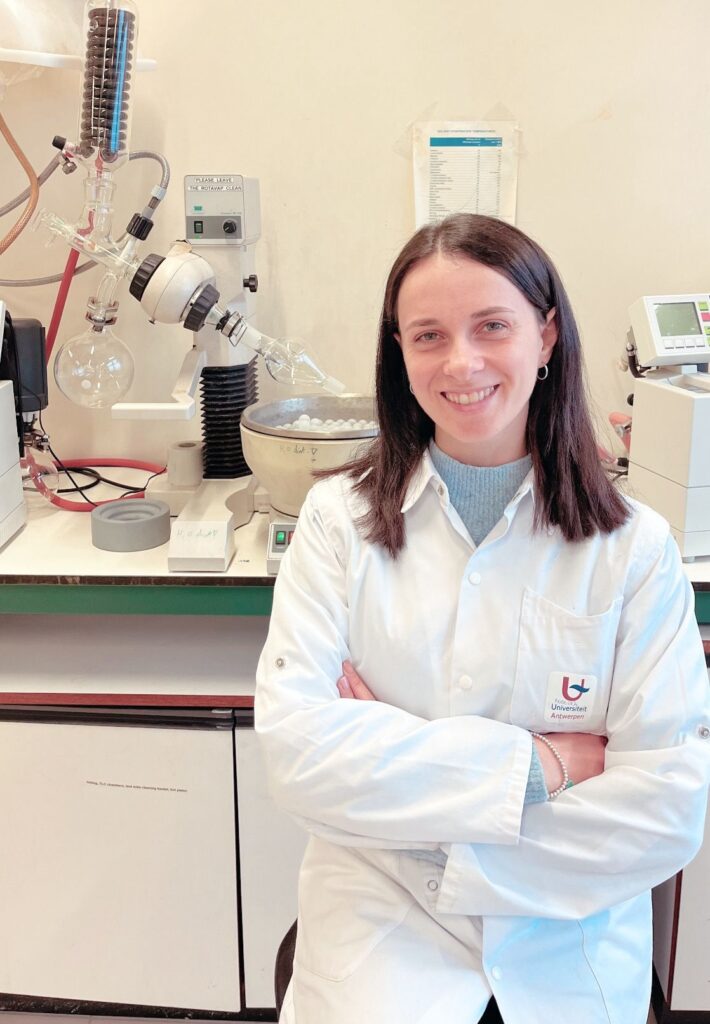
Dr. Roberta Pacifico, works as a postdoctoral researcher in the Medicinal Chemistry group, under supervision of Prof. Koen Augustyns, and she will soon transition to a project supervised by Prof. Pieter van der Veken. Her current project focuses on discovering a novel compound series targeting receptor MmpL3 for the treatment of Non-Tubercular Mycobacteria (NTM) infections, a rapidly increasing cause of pulmonary complications. Roberta’s research aims to identify specific drug candidates for NTM treatment, funded by the Innovative Medicine Initiative (IMI) in collaboration with Janssen Pharmaceutica Nv and other European academic groups. She is proud to report significant progress in this endeavor and forthcoming publications in high-impact peer-reviewed journals. Additionally, Roberta is excited to embark on a new project synthesizing selective fibroblast activation protein (FAP) inhibitors to combat various cancers. Her passion lies in contributing to the discovery of future therapeutics, advocating for more women to join the scientific community and striving for equality in the field.
Dr. Vanesa Nozal: Pioneering Autophagy-Based Therapies for Acute Myeloid Leukemia
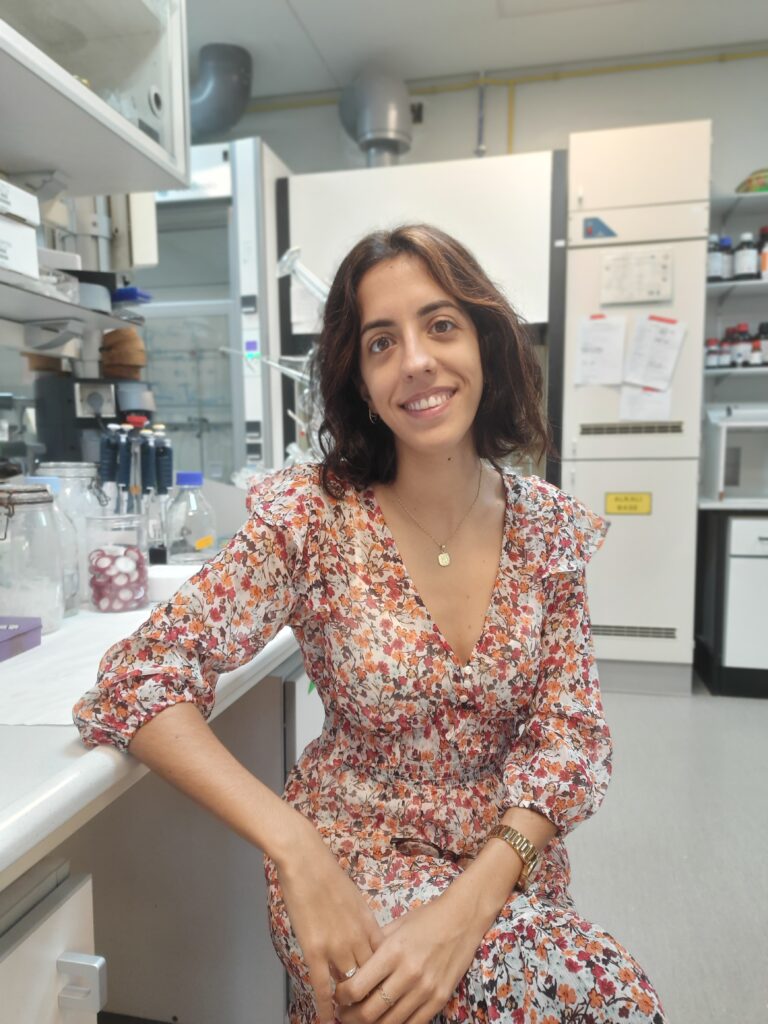
Dr. Vanesa Nozal is a Spanish FWO postdoctoral fellow working in the Medicinal Chemistry group with Prof. Pieter Van Der Veken. Vanesa’s research focuses on the development of therapeutic agents targeting acute myeloid leukemia (AML). Leveraging her expertise in organic chemistry, she specializes in synthesizing novel molecules crucial for unraveling the complexities of this disease. Vanesa’s innovative approach centers on harnessing our cellular recycling machinery to eliminate the proteins implicated in AML, paving the way for promising therapeutic interventions.
Faculty of Pharmaceutical, Biomedical, and Veterinary Sciences: Stimulating Excellence in Education and Research
As we celebrate the achievements of these remarkable women in science, let us continue to support and empower women and girls worldwide to pursue careers in STEM fields. By fostering inclusivity, diversity, and innovation, we can create a brighter future.
The Faculty of Pharmaceutical, Biomedical, and Veterinary Sciences at the University of Antwerp is dedicated to fostering excellence in education and research. With interdisciplinary collaboration and innovative approaches, this faculty offers a diverse range of programs in pharmaceutical, biomedical, and veterinary sciences. Through partnerships with leading research institutes and industry, the faculty translates discoveries into practical solutions for societal benefit. Providing a supportive and inclusive environment, it empowers students and researchers to advance knowledge and drive meaningful contributions to their fields.
